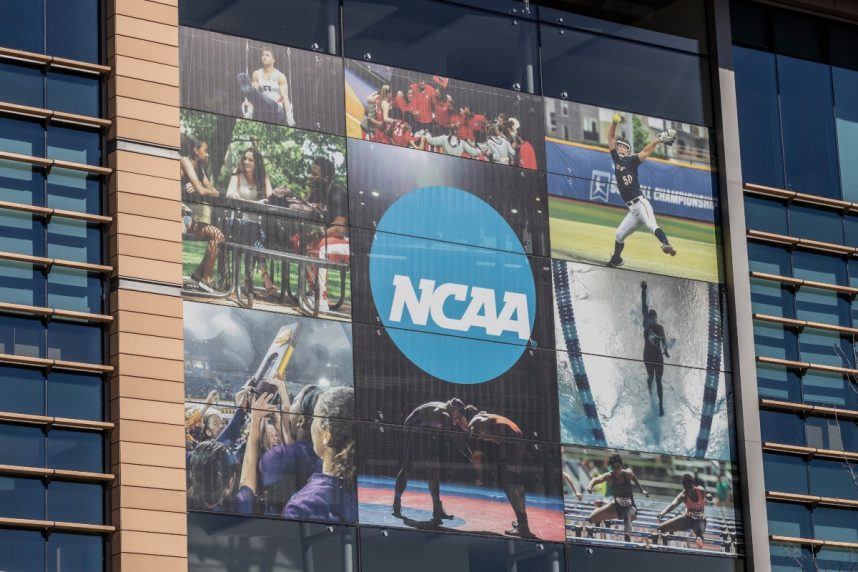NCAA Student-Athletes Can Soon Bet on Professional Sports
Posted on: October 23, 2025, 08:39h.
Last updated on: October 23, 2025, 10:26h.
- NCAA student-athletes can be on professional sports beginning November 1
- College athletes remain barred from betting on all forms of collegiate athletics
It’s official. Student-athletes participating in college sports sanctioned by the NCAA can bet on professional sports beginning November 1, so long as they use a legal, regulated sportsbook.

Earlier this month, Casino.org reported that the odds were good that college athletes participating in NCAA sports would soon be allowed to gamble on the outcome of professional sporting events. The news broke after the NCAA Division I Administrative Committee adopted a proposal to amend the ban on student-athletes betting on all sports to exclude pro games.
The NCAA Division II and II management councils, as expected, ratified the proposal during their meetings this week. The adoption means that, effective November 1, all college students of legal sports gambling age will be able to bet lawfully on professional sports.
This change recognizes the realities of today’s sports environment without compromising our commitment to protecting the integrity of college competition or the well-being of student-athletes,” said Roberta Page, the director of athletics at Slippery Rock University in Pennsylvania and the Division II Management Council chair.
The NCAA says its sports betting regulatory change “is not an endorsement of sports betting.”
NCAA Regulatory Responsibilities
The NCAA’s decision to allow its student-athletes to bet on pro sports is threefold. The lifting means college players who knowingly or unknowingly violate the rule will not be subject to harsh penalties, including the loss of eligibility.
Perhaps more of a motive, however, is that monitoring every college athlete’s online gaming and betting activity, inclusive of college and professional sports, is a herculean task. The NCAA alone has more than 540K student-athletes competing at over 1,000 member schools across 24 sports.
Allowing college athletes to bet on professional sports somewhat reduces the surveillance workload. The NCAA said the change allows the association and its conferences and member schools “to focus on protecting the integrity of college games … while encouraging healthy habits for student-athletes who choose to engage in betting activities on professional sports.”
We run the largest sports betting integrity program in the world,” said NCAA President Charlie Baker. “Sadly, we discovered some student athletes involved with some problematic activity.”
There’s also the thinking that ending the pro sports betting ban will bring some student-athletes gambling on the NFL and other pro sports via unregulated, offshore online sportsbooks, or through a local bookie, into the regulated market. Regulated sportsbooks come with consumer safeguards like responsible betting programs and financial account security.
College Bets Remain Out of Bounds
All NCAA student-athletes remain barred from betting on any outcome involving college sports, regardless of whether they compete in the associated sport, conference, or division.
“NCAA rules ban participation in sports betting activities and prohibit providing information to individuals involved in or associated with any type of sports betting activities concerning intercollegiate or amateur athletics competition,” the NCAA rules read. “In other words, if you are a student-athlete, coach, or athletics staff member, regardless of sport or division, you are not allowed to bet or provide any useful information that can influence a bet in any sport the NCAA sponsors at any level.”
Last Comment ( 1 )
No one seriously believes they won’t bet on their own games. This shit will corrode college athletics